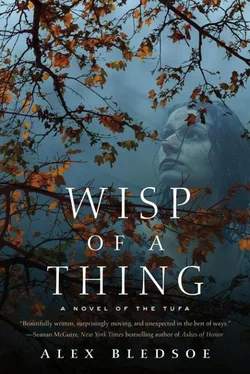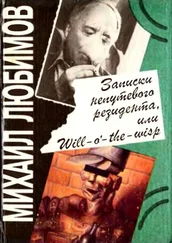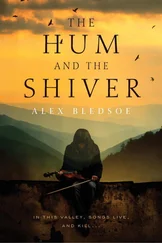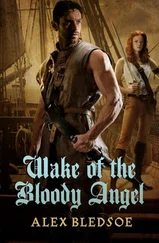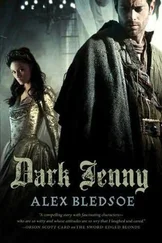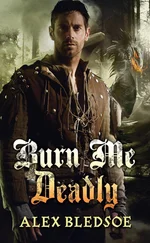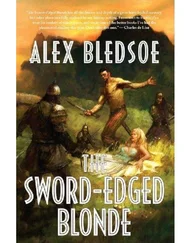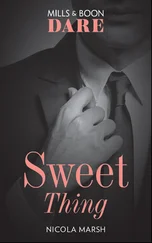“Your girlfriend died. Flying out to surprise you.”
“She did.”
Bliss reached across the picnic table and touched his arm. “I’m so sorry.”
“Me, too.”
“I don’t… I mean—”
“You don’t have to say anything else,” he said wearily. “It’s all been said by now. But I appreciate your sympathy. Seriously, I do.”
“Why didn’t you tell me yesterday?”
“It’s kind of hard to drop into casual conversation, especially when someone’s sewing your head closed. Besides,” he added wryly, “I asked Mrs. Goins at the motel to keep it secret, so I figured she might’ve already told you.”
“She’s not as gossipy as she seems.”
“Well… now you know.”
Tentatively, she took his hand. He hadn’t held hands with anyone since Anna died, and the sensation of feminine fingers threading through his own made him jump. They sat in silence, the wind rustling the leaves around them. Rob looked down at the ground, where a train of ants detoured around one foot. It was always weird when his tragedy came up; only this time, he also felt unaccustomed relief.
In a voice as gentle as the breeze around them, she said, “Now I have to ask you: Why are you here? You don’t know anyone, and you’re not descended from the Tufa. Shouldn’t you be at home or something? With your family?”
“Home’s the last place I want to be. Everything there reminds me of her. And way too many people want to tell me how I should feel.”
“But that doesn’t explain why you chose here. ”
He thought before answering. “I’ll tell you why, but then you have to answer a question for me. Agreed?”
“What sort of question?”
“Ah, that’s cheating. You have to agree without knowing, otherwise I won’t be able to trust your answer.”
“Agreed, then.”
He told her about the backstage cowboy and the supposedly magical song. He watched her face, but she betrayed no reaction. When he finished, he said, “So what do you think?”
“Is that your question?”
“No. But I’d like to know.”
“It sounds like somebody was just yanking your chain. They knew what had happened to you and were playing a really cruel joke.”
“So you don’t know anything about it?”
“Why would I?”
“I heard you were high up in the Tufa chain of command.”
She laughed. “Who told you that? Doyle Collins? Doyle’s not a Tufa.”
“So he’s wrong?” Before she could answer, he continued, “Look, I’m sorry. Rationally, I don’t really believe a word of it myself. But if there’s even a chance… if a song exists that could get rid of this feeling, this weight …” He looked away and blinked his tears back under control.
“Sorry,” he said. “Slips up on me sometimes. Now, my question. Are the verses from those tombstones behind the fire station part of a song? Maybe part of that song?”
She’d promised to answer, but she had older promises to keep as well. She said carefully, “I’m serious when I say that I’ve never heard of a song like the one you described. As for the graves… you weren’t supposed to see them.”
“Why not?”
“No, that’s not what I mean. You weren’t supposed to be able to see them. Would you accept, for the sake of argument, that there are ways of hiding things in plain sight? Ways of keeping people from seeing them even when they’re looking right at them?”
He recalled the way neither he nor Kizer had been able to see the words earlier. “Like some kind of psychic cloaking field?”
“Yeah, that’s not a bad analogy. Something that keeps non-Tufas from seeing things if they aren’t deliberately shown them.”
“A magic spell?”
She half shrugged, half nodded.
“But I saw them. And so did Terry.”
A pit opened in her belly. “You showed them to someone else?” she whispered.
“Yeah, some guy in town doing genealogy. He said the Swetts were his ancestors, so I took him out there. And he saw them, too.”
She waited for her stomach to hit bottom. How could this get worse?
“But I’m not a Tufa,” Rob finished. “Not a bit. So how did I see them?”
She forced herself to stay calm. She said, “I’ve been pondering that myself. I can’t explain it. But you did see them. They’re verses from something that’s sacred, and secret, and powerful to us. That’s why we hide them.”
“So what’s the rest of the song?”
She shook her head. “I don’t know. Honestly. I have no idea how the song ends.”
“What’s it about?”
“It’s a dirge. A song written for someone’s death. That’s why it’s used as an epitaph.”
“A dirge,” he said, thinking aloud, “could also be a song that takes away grief. And heartache is grief. But how can a song do that?”
She gritted her teeth against the urge to speak. He was so right, so close, and yet he had no business being. How could this non-Tufa comprehend, understand, see so much? What was she missing?
“Look around you, Rob. It looks beautiful and serene, doesn’t it? But there’s more blood soaked into these hills than you can imagine. And not all that blood sits quietly. On the right night, at the right time, if the right song is sung, you can see the shades in the moonlight. And that’s no joke.”
“I don’t get it.”
“Here, songs… do things. Cause things to happen. The right song at the right time can change everything.”
“Like a spell,” he said again.
“Like, yes. But more so.”
“So the song from those epitaphs has the power to change things,” he said.
Bliss nodded, but inside she was struggling to decide what she should do. Should she kill him now, and end any chance of the secrets coming out? It would be simple, and so easy to make it look like he’d slipped and fallen to his death.
But the night winds had blown them together. The sign was unmistakable. Two guitar picks floating on the water, like two musicians in the rivers of time, drawn together and lightly touching.
And then she knew what she needed to do.
She put her guitar across her lap.
It was a customized black Breedlove C22, with her name set in inlaid faux pearl letters along the neck. “We’ve talked enough,” she said. “Let’s play. This is another song by Kate Campell. See if you can follow me.”
* * *
The spotless black truck was parked incongruously outside an old shotgun shack high on the mountain. In a few weeks, enough leaves would have fallen that Needsville would be visible below, through the bare branches. As it was, though, the vehicle and building were hidden from view.
Rockhouse Hicks sat on the tailgate, his banjo in his arms. He softly plucked the strings, just loud enough to cover the sounds of sexual activity coming from the shack. Inside, his nephew Stoney Hicks was having his way with the woman from town. She was willing—they were all always willing—but she had no idea that she’d pay a horrendous price. Non-Tufa girls around here knew to avoid Tufa boys, especially full-blooded ones like Stoney Hicks. Especially Stoney.
The cries and grunts faded, and Stoney emerged, barefoot and clad only in his jeans. He was a staggeringly good-looking young man, with a face like a Native American warrior and matching jet-black hair to his shoulders. He stood six-four, and every muscle was chiseled perfection. He wouldn’t have been out of place on a romance novel cover, were it not for the cold, selfish mockery in his eyes.
“Hey, Uncle Rockhouse,” he said as he opened a cooler in the bed of the truck. “Want a beer?”
“No, thanks,” he said. “How’d it go?”
Читать дальше
